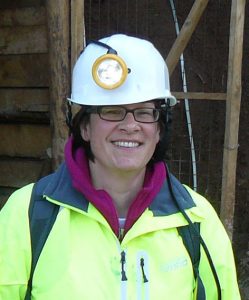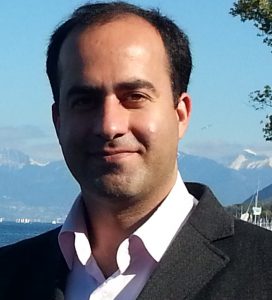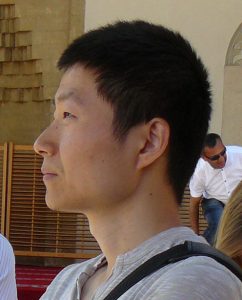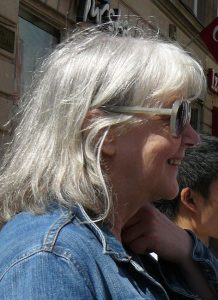
Kate took up the post of BGS Lecturer in Critical and Green Technology Metals in March 2012, as part of the Critical Metals Alliance between the British Geological Survey and the Camborne School of Mines. The purpose of the post is to drive research into the emerging issue of security of resource supply, particularly for the raw materials used in the low-carbon energy technologies. Specifically, her research involves elucidating the geological concentration of the technology metals that may be subject to critically short supply.
Her previous experimental work examines the range of magma compositions that can be generated by melting of a carbonated mantle, which provides a means to assist petrological understanding of the highly economic clan of carbonatite-related rocks that are sampled at the Earth surface. Her work on magma mingling and mixing of carbonated magmas challenges the perception that carbonatites are inherently immiscible with silicate magmas, and provides a new perspective with which to approach carbonatite petrogenesis. Recent PhD supervision includes projects on the role of carbonate in diatremic magmatism, magma-sediment-water interaction and associated mineralization, fluid-carbonatite interaction and geochemical and numerical modeling of carbonate-silicate magma mingling.
An additional academic interest in prehistoric resources, landscapes and environmental change has arisen from research into the exploitation of metals that were critical to Neolithic and Bronze Age cultures. Research areas include geoarchaeological landscape assessment techniques and geological interpretation of geomythology and place name information. Kate has also previously been engaged in historical research associated with management of a conservation project for a historic birchbark canoe (2002-2012, James Mitchell Geology Museum, NUIG).

Saeid holds a PhD in Minerals Engineering / Hydrometallurgy from the Royal School of Mines, Imperial College London. He has more than 15 years of experience in industrial R&D, operations and consultancy in metallurgical and industrial minerals industries. He has received many fellowships, industry awards and prizes for his research & engineering excellence. He is currently employed at the Camborne School of Mines as a Research Fellow in Metallurgy and Plant Operations, working on IMP@CT Project. His main role within this project is leading WP4 – Modular Mobile Plant.

Xiaoyu is a Senior Lecturer in Energy and Environment at the University of Exeter and previously a Research Associate at the Universities of Cambridge, Oxford and London, with a PhD in Mechanical Engineering from Queen Mary, University of London. He has a broad interest in Energy and the Environment and worked with engineers, chemists, plant scientists, environmental scientists, social scientists, economists, biologists, ecologists, computer scientists, modellers and mathematicians in a range of interdisciplinary areas. The central theme of his current research is to develop models and tools that can help governments, industries and the public make more informed decisions with regard to sustainability. Xiaoyu is interested in supervising PhD projects and working with academic visitors in the following areas:
- Sustainability assessment of bioenergy pathways, electricity generation technologies, transport options, water systems and mining operations using life cycle assessment (LCA)
- Developing spatio-temporal dynamical LCA methods
- Impact of renewable energy systems on ecosystem services
- Water-Energy-Food-Environment Nexus
- Energy and transport system modelling
- Performance and emissions of alternative fuels in engines

Dana Finch is the project manager for IMP@CT. Dana Finch has been a project manager for over ten years, on EU funded projects, in the FP6 and FP7 programmes, prior to taking on the role on this Horizon 2020 project. Previous posts were predominantly in medical research groups at Imperial College London, King’s College London and the University of Oxford. She is also an artist and is interested in using art to engage communities with the realities of a mining project
